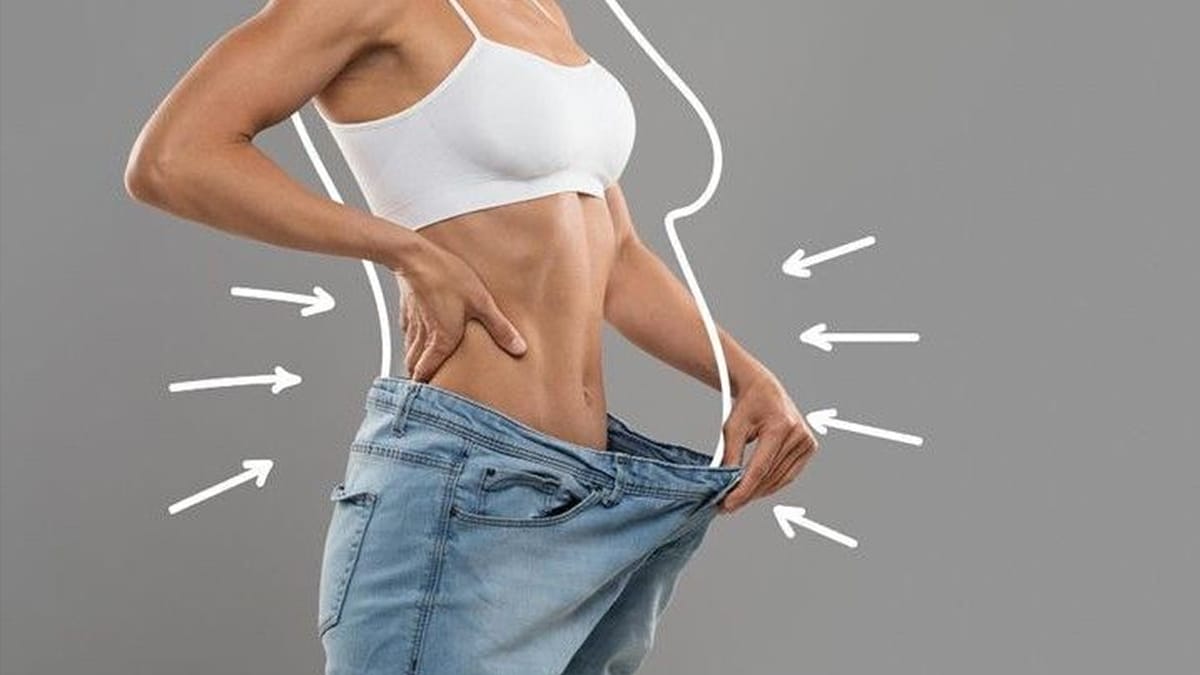Can Weight Loss Be Achieved Without Diet or Exercise?
Many people wonder if it is truly possible to lose weight without following a strict diet or committing to intense exercise routines. The short answer is yes, weight loss can happen without traditional dieting or exercise, but it is important to understand that results may vary, and the process often involves lifestyle modifications, subtle behavioral changes, and mindful strategies. This article explores the truth behind this question, examines scientific findings, and provides practical methods that deliver long-term benefits.

Can Weight Loss Be Achieved Without Diet or Exercise?
The Core Idea: Calories, Habits, and Metabolism
Weight loss fundamentally depends on creating a calorie deficit, which means burning more calories than you consume. However, you do not always need a rigid diet plan or a grueling workout routine to achieve this deficit. Small, consistent changes in lifestyle, daily activities, and habits can make a significant impact over time. Research has shown that even without structured exercise, increasing daily non-exercise activity, improving sleep, managing stress, and adopting mindful eating can help you shed pounds.
The Role of Non-Exercise Activity Thermogenesis (NEAT)
Non-Exercise Activity Thermogenesis, also known as NEAT, is the energy you expend for everything you do that is not sleeping, eating, or sports-like exercise. Walking around the office, cleaning your house, gardening, climbing stairs, or even fidgeting contribute to NEAT. Studies suggest that NEAT can account for hundreds of calories burned daily. For someone who dislikes traditional workouts, increasing NEAT is a powerful way to achieve weight loss without structured exercise.
Examples include standing instead of sitting, parking farther from destinations, taking stairs rather than elevators, and spending more time on household chores. These actions may seem small, but collectively they make a real difference.

Mindful Eating and Portion Awareness
Weight loss without diet does not mean eating anything in unlimited amounts. Instead, it focuses on eating mindfully. Mindful eating means paying attention to what, when, and how much you eat. For example, slowing down during meals, avoiding distractions like TV, and listening to your body’s hunger cues can naturally reduce calorie intake.
Portion awareness also plays a major role. Simply using smaller plates, serving moderate amounts, and avoiding eating directly from large packages can help regulate how much you consume without feeling deprived. According to Harvard Health, individuals who practice mindful eating often experience improved digestion, better satiety, and sustainable weight control.
The Influence of Sleep on Weight Loss
Many underestimate the importance of sleep in weight management. Studies have shown that poor sleep disrupts hunger-regulating hormones, leading to increased cravings, especially for high-calorie foods. Adults who consistently sleep less than seven hours per night are at a higher risk of weight gain.
Improving sleep hygiene, such as maintaining a consistent sleep schedule, reducing screen time before bed, and creating a relaxing environment, can help regulate appetite and metabolism naturally. This way, weight loss becomes achievable without relying on diet restrictions or exercise regimens.
Stress Management and Emotional Eating
Stress is another factor that can silently influence weight gain. Chronic stress increases the production of cortisol, a hormone linked to fat storage, especially around the abdomen. Many people also resort to emotional eating during stressful periods, consuming more comfort foods high in sugar and fat.
Incorporating stress management techniques such as meditation, yoga, deep breathing exercises, or even journaling can help break this cycle. By managing stress effectively, you reduce unnecessary calorie intake and support a healthier metabolism.
Hydration as a Natural Weight Loss Tool
Drinking water is a simple yet powerful way to support weight loss. Often, people confuse thirst with hunger and end up eating extra calories when their body only needs hydration. Drinking a glass of water before meals can help control appetite, reduce portion size, and improve digestion.
Replacing sugary drinks like soda or flavored coffee with water, herbal teas, or sparkling water saves hundreds of calories daily. In one study, participants who drank more water had significantly lower body weight and improved metabolism compared to those who consumed sweetened beverages.
Incidental Movement Throughout the Day
While structured workouts are beneficial, incidental movement—everyday activities that keep you moving—can also be a great alternative. For example, walking while talking on the phone, stretching at your desk, or standing during meetings increases calorie expenditure. Many experts suggest aiming for 8,000–10,000 steps daily, which can often be achieved without traditional exercise.
Intermittent Fasting Without Dieting
Intermittent fasting is not a diet in the traditional sense; it is an eating pattern that alternates between periods of eating and fasting. The most popular method is the 16:8 approach, where you eat within an eight-hour window and fast for the remaining sixteen hours. This method naturally reduces calorie intake without requiring food restrictions or specific meal plans.
Scientific studies, including research published in the Journal of Clinical Endocrinology & Metabolism, have demonstrated that intermittent fasting helps regulate insulin sensitivity, improve fat burning, and promote sustainable weight loss.
Environmental and Social Factors
Your environment strongly influences your eating and activity habits. Keeping unhealthy snacks out of sight, stocking your kitchen with nutritious options, and surrounding yourself with supportive people can make weight loss easier without strict diets or exercise programs.
For example, eating meals with family at a table instead of in front of a screen promotes mindful consumption. Similarly, social support from friends or colleagues who encourage healthy choices can make it easier to stay consistent.
Technology and Tools That Help
Weight loss without diet or exercise can also be supported by modern technology. Apps that track daily steps, remind you to drink water, or monitor your sleep cycles can subtly guide you toward healthier behaviors. Fitness trackers, smartwatches, and calorie-monitoring apps do not require intense workouts but encourage small, consistent lifestyle improvements.
The Psychological Impact of Small Wins
One powerful factor often overlooked is the psychological impact of achieving small goals. Losing weight without dieting or exercising heavily may take longer, but the positive reinforcement of small successes—like noticing looser clothes or increased energy—helps maintain motivation.
Instead of drastic lifestyle overhauls, focusing on gradual adjustments reduces the likelihood of giving up and increases the chances of long-term success.
Frequently Asked Questions (FAQ)
**Is it really possible to lose weight without diet or exercise?**
Yes, weight loss is possible without strict dieting or exercise, through methods like mindful eating, increasing daily activity, proper hydration, quality sleep, and stress management.
**How much weight can I lose without diet or exercise?**
The results vary depending on your metabolism and consistency, but most people can expect modest, steady weight loss of 0.5–1 pound per week using lifestyle modifications.
**What is the most effective method to lose weight naturally?**
Combining mindful eating, proper hydration, adequate sleep, and increasing NEAT (non-exercise activity) tends to be the most effective holistic approach.
**Is intermittent fasting considered dieting?**
Not exactly. Intermittent fasting is more about when you eat rather than what you eat, making it different from traditional diets.
**Can stress really affect weight loss?**
Yes. Chronic stress elevates cortisol levels, which can increase fat storage and appetite, making weight loss more difficult.
**Do I need supplements to lose weight without diet or exercise?**
Supplements are not necessary but can be helpful in certain cases, such as fiber, protein shakes, or vitamins if your diet lacks balance.
**What products can support weight loss without diet or exercise?**
Examples include portion-control containers, water bottles with reminders, sleep-tracking devices, step counters, and stress-relief tools like yoga mats or meditation apps.
Tips, Tricks, and Warnings
1. Avoid relying solely on shortcuts like weight loss pills; sustainable habits always work better.
2. Watch out for hidden calories in sugary drinks, sauces, and processed snacks.
3. Avoid extreme sleep deprivation, as it directly sabotages weight loss efforts.
Final Thoughts: Practical Tips for Success
1. Increase daily incidental movement instead of forcing yourself into intense workouts.
2. Practice mindful eating to reduce overeating without restricting foods.
3. Stay hydrated throughout the day and replace sugary drinks with water.
4. Prioritize 7–9 hours of quality sleep every night.
5. Learn to manage stress through relaxation techniques.
6. Set realistic goals and celebrate small wins to stay motivated.
7. Surround yourself with supportive environments and positive influences.
By making small, consistent lifestyle changes, weight loss without dieting or exercise is not only possible but sustainable. It requires patience, commitment, and a focus on overall well-being rather than quick fixes. This approach leads to healthier habits, long-term results, and a better quality of life.
Reference & Additional Reading
Inspired by studies and insights from:
www.health.harvard.edu
www.menshealth.com
www.healthline.com
www.womenshealthmag.com
www.ncbi.nlm.nih.gov
www.webmd.com
www.medlineplus.gov
www.tridenttech.edu
www.burnexia.com

